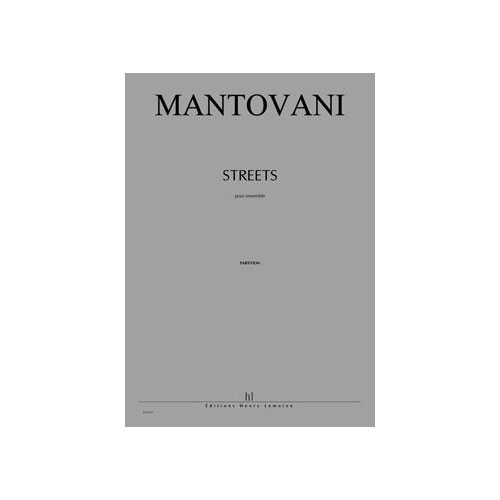30-day satisfaction guarantee or your money back
Call us : +33 257 880 074
 en
en 
It is this phenomenon that I tried to transcribe in Streets, whose most lively and virtuosic passages are actually those where the listening is the least evolving. In an extremely limited harmonic universe (the entire piece is based on a single chord), the discourse alternates between frantic moments and periods where calm is not synonymous with stillness. Influenced by what is called "granular synthesis" in the world of electroacoustic studio music, I also tried to establish progressive transformations of identifiable elements into accumulative textures. Streets is a real compositional challenge for me, insofar as I forbade myself any juxtaposition while trying to preserve the energy of my writing in a more directional conception of form than usual. But the challenge concerns other aspects: I restricted myself to a short form (about fifteen minutes) whereas I was rather used to long durations during the period when I wrote the work (my opera, composed just before this piece, lasts 2h30), I devoted myself to a set of small dimensions (whereas since 2001, I had only approached the fields of chamber music or large orchestra), and more anecdotally, I wanted to create in the form the conditions for an energetic ending, which I had not done for several years. Streets therefore marks a radical questioning of my language.
This work is dedicated to Pierre Boulez, and to Constance.
Bruno Mantovani
Recording:
1 CD Kairos,
Le Sette Chiese - Streets - Eclair de Lune
Ircam, Ensemble Intercontemporain, Susanna Mälkki (conductor)Author: MANTOVANI Bruno Discipline/Instrument: ensembleFormat: Score Style/Genre: contemporary Release date: Sept.-06